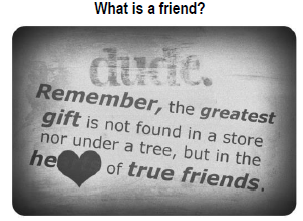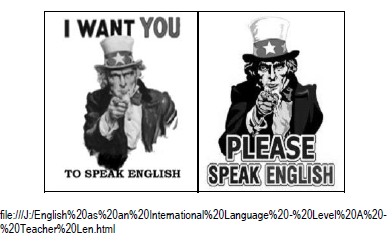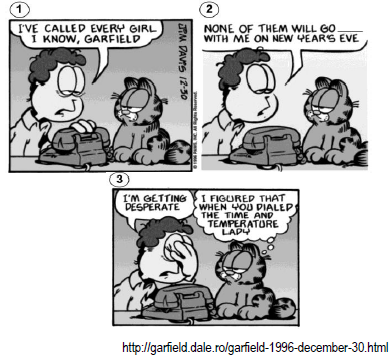Questões de Vestibular Sobre inglês
Foram encontradas 5.992 questões
Leia o texto para responder à questão.
Read books, live longer?
Nicholas Bakalar
August 3, 2016

Reading books is tied to a longer life, according to a new report. Researchers used data on 3,635 people over 50 participating in a larger health study who had answered questions about reading. The scientists divided the sample into three groups: those who read no books, those who read books up to three and a half hours a week, and those who read books more than three and a half hours.
The study, in Social Science & Medicine, found that book readers tended to be female, college-educated and in higher income groups. So, researchers controlled for those factors as well as age, race, self-reported health, depression, employment and marital status.
Compared with those who did not read books, those who read for up to three and a half hours a week were 17 percent less likely to die over 12 years of follow-up, and those who read more than that were 23 percent less likely to die. Book readers lived an average of almost two years longer than those who did not read at all.
They found a similar association among those who read newspapers and periodicals, but it was weaker.
(http://well.blogs.nytimes.com. Adaptado.)
Leia o texto para responder à questão.
Read books, live longer?
Nicholas Bakalar
August 3, 2016

Reading books is tied to a longer life, according to a new report. Researchers used data on 3,635 people over 50 participating in a larger health study who had answered questions about reading. The scientists divided the sample into three groups: those who read no books, those who read books up to three and a half hours a week, and those who read books more than three and a half hours.
The study, in Social Science & Medicine, found that book readers tended to be female, college-educated and in higher income groups. So, researchers controlled for those factors as well as age, race, self-reported health, depression, employment and marital status.
Compared with those who did not read books, those who read for up to three and a half hours a week were 17 percent less likely to die over 12 years of follow-up, and those who read more than that were 23 percent less likely to die. Book readers lived an average of almost two years longer than those who did not read at all.
They found a similar association among those who read newspapers and periodicals, but it was weaker.
(http://well.blogs.nytimes.com. Adaptado.)
Leia o texto para responder à questão.
Read books, live longer?
Nicholas Bakalar
August 3, 2016

Reading books is tied to a longer life, according to a new report. Researchers used data on 3,635 people over 50 participating in a larger health study who had answered questions about reading. The scientists divided the sample into three groups: those who read no books, those who read books up to three and a half hours a week, and those who read books more than three and a half hours.
The study, in Social Science & Medicine, found that book readers tended to be female, college-educated and in higher income groups. So, researchers controlled for those factors as well as age, race, self-reported health, depression, employment and marital status.
Compared with those who did not read books, those who read for up to three and a half hours a week were 17 percent less likely to die over 12 years of follow-up, and those who read more than that were 23 percent less likely to die. Book readers lived an average of almost two years longer than those who did not read at all.
They found a similar association among those who read newspapers and periodicals, but it was weaker.
(http://well.blogs.nytimes.com. Adaptado.)
Leia o texto para responder à questão.
Read books, live longer?
Nicholas Bakalar
August 3, 2016

Reading books is tied to a longer life, according to a new report. Researchers used data on 3,635 people over 50 participating in a larger health study who had answered questions about reading. The scientists divided the sample into three groups: those who read no books, those who read books up to three and a half hours a week, and those who read books more than three and a half hours.
The study, in Social Science & Medicine, found that book readers tended to be female, college-educated and in higher income groups. So, researchers controlled for those factors as well as age, race, self-reported health, depression, employment and marital status.
Compared with those who did not read books, those who read for up to three and a half hours a week were 17 percent less likely to die over 12 years of follow-up, and those who read more than that were 23 percent less likely to die. Book readers lived an average of almost two years longer than those who did not read at all.
They found a similar association among those who read newspapers and periodicals, but it was weaker.
(http://well.blogs.nytimes.com. Adaptado.)

A friend is someone who brings out the best in you;
Good friends are always happy to help when you run into a
problem;
A friend is someone who cheers you up when you’re feeling
bad;
True friends don’t drift apart even after many years of
separation;
A real friend will always stand up for you when others
are putting you down;
Never be afraid to open up and ask a friend for advice. A true
friend will never turn you down;
Make new friends but hang on to the old ones;
Good friends are hard to come by, harder to leave, and
impossible to do without.
file:///j:/top%2010%20reasons%20why%20learning%20english
É extremamente comum em inglês combinações de verbos
com partículas adverbiais ou preposicionais. Essas
combinações são geralmente chamadas de verbos frasais
(phrasal verbs), preposicionados ou de duas palavras. No
texto, encontram-se vários exemplos de verbos frasais
negritados. A correlação correta entre o verbo e seu sentido
está contemplada em

About one hundred years ago many educated people learned and spoke French when they met people from other countries. Today most people speak English when they meet foreigners. It has become the new international language. There are more people who speak English as a second language than people who speak English as a first language. Why is this? There are many reasons why English has become so popular. One of them is that English has become the language of business. Another important reason is that popular American culture (like movies, music, and McDonald's) has quickly spread throughout the world. It has brought its language with it.
file:///J:/English%20as%20an%20International%20Language%20- %20Level%20A %20-%20Teacher%20Len.html
According to the text, it is correct to say that

The universal language, English is indeed the most prevalent language in the world. Looking at its largest number of speakers, it is acknowledged as the primary language, internationally. English has become the chief language today, for the global trade, social media networks and websites, science and research centers, educational institutions and for maximum number of immigrants and travelers all over the world. In today’s modern era of higher learning and overweening ambitions, when everyone is shooting for a booming and fruitful career, the English language has occupied a more significant position among all the languages of the world. This is due to the fact that it is the globally accepted language and extremely useful for a professional in dealing with the international clients. English language is rapidly spreading worldwide for several crucial purposes and there are multiple reasons why one must learn English.
file:///j:/top%2010%20reasons%20why%20learning%20english%20is%20mus
t%20_%20lists%20trivia.html
A expressão que denota o sentido de liderança da Língua Inglesa globalizada é

A figura do Uncle Sam sempre está relacionada à convocação
de soldados americanos para a guerra. As duas figuras acima
estão fazendo essa convocação, porém de maneiras
diferentes. Considerando que os dois cartazes indicam uma
ordem, a expressão utilizada em um desses cartazes que torna
a ordem mais educada é

Muitos verbos em inglês consistem em duas partes: um verbo
“base” (tais como bring, take, go, come) acompanhados de uma
preposição ou de uma partícula adverbial (tais como up, down,
out, in, off). No segundo quadro da tirinha, foi retirada a palavra
que acompanha o verbo GO. A preposição que completa o
sentido do verbo na fala do personagem é
Water availability and access are key constraints to poverty reduction and food security. Maintaining enough water for agriculture of reasonable quality will be increasingly difficult due to climate change, competition for water with industries, urban uses and the environment, and the need to produce biofuels. Much of the world is faced with a situation where water supplies for various uses are overallocated, with river flows much reduced, groundwater levels dropping, and important ecosystems threatened - a situation of physical water scarcity. Much of this is driven by agricultural water use. In other parts of the world, availability of water in rivers, wetlands, and aquifers is ample, but access is difficult because people have not found means to develop the water resource - a situation of economic water scarcity. Adaptive management strategies are required to balance decreasing availability with increasing demand, while coping with uncertainties. These include water allocation strategies, development of appropriate types of water storage ranging from small ponds to large reservoirs and from surface structures to managed aquifers, and adopting policies that provide incentives to use water differently. As new water infrastructure is a key strategy for improving secure access for agriculture, the theme considers various benefits and costs of infrastructural development. The overall aim is to maintain equity in water access, agricultural productivity, human health and environmental quality in the face of increasing water scarcity at local, basin and transboundary scales via development of adaptive management strategies, policy responses and tradeoffs.
Water availability and access are key constraints to poverty reduction and food security. Maintaining enough water for agriculture of reasonable quality will be increasingly difficult due to climate change, competition for water with industries, urban uses and the environment, and the need to produce biofuels. Much of the world is faced with a situation where water supplies for various uses are overallocated, with river flows much reduced, groundwater levels dropping, and important ecosystems threatened - a situation of physical water scarcity. Much of this is driven by agricultural water use. In other parts of the world, availability of water in rivers, wetlands, and aquifers is ample, but access is difficult because people have not found means to develop the water resource - a situation of economic water scarcity. Adaptive management strategies are required to balance decreasing availability with increasing demand, while coping with uncertainties. These include water allocation strategies, development of appropriate types of water storage ranging from small ponds to large reservoirs and from surface structures to managed aquifers, and adopting policies that provide incentives to use water differently. As new water infrastructure is a key strategy for improving secure access for agriculture, the theme considers various benefits and costs of infrastructural development. The overall aim is to maintain equity in water access, agricultural productivity, human health and environmental quality in the face of increasing water scarcity at local, basin and transboundary scales via development of adaptive management strategies, policy responses and tradeoffs.
Water availability and access are key constraints to poverty reduction and food security. Maintaining enough water for agriculture of reasonable quality will be increasingly difficult due to climate change, competition for water with industries, urban uses and the environment, and the need to produce biofuels. Much of the world is faced with a situation where water supplies for various uses are overallocated, with river flows much reduced, groundwater levels dropping, and important ecosystems threatened - a situation of physical water scarcity. Much of this is driven by agricultural water use. In other parts of the world, availability of water in rivers, wetlands, and aquifers is ample, but access is difficult because people have not found means to develop the water resource - a situation of economic water scarcity. Adaptive management strategies are required to balance decreasing availability with increasing demand, while coping with uncertainties. These include water allocation strategies, development of appropriate types of water storage ranging from small ponds to large reservoirs and from surface structures to managed aquifers, and adopting policies that provide incentives to use water differently. As new water infrastructure is a key strategy for improving secure access for agriculture, the theme considers various benefits and costs of infrastructural development. The overall aim is to maintain equity in water access, agricultural productivity, human health and environmental quality in the face of increasing water scarcity at local, basin and transboundary scales via development of adaptive management strategies, policy responses and tradeoffs.

Considering the information from the text, choose the correct alternative.
Now, Mandela wants only to rest and to have
fun.

Considering the information from the text, choose the correct alternative.
Apartheid is a form of racism.

Considering the information from the text, choose the correct alternative.
“Madiba” is a nickname that was given to
Mandela when he was a child.

Considering the information from the text, choose the correct alternative.
Mandela would like the rich to help the poor.

Considering the information from the text, choose the correct alternative.
Today, Mandela is ninety-two years old.

According to the text, choose the correct alternative.
The text contains information about Nelson
Mandela’s biography.

According to the text, choose the correct alternative.
The text gives information about racial
segregation.

According to the text, choose the correct alternative.
The text is characterized as political
propaganda.